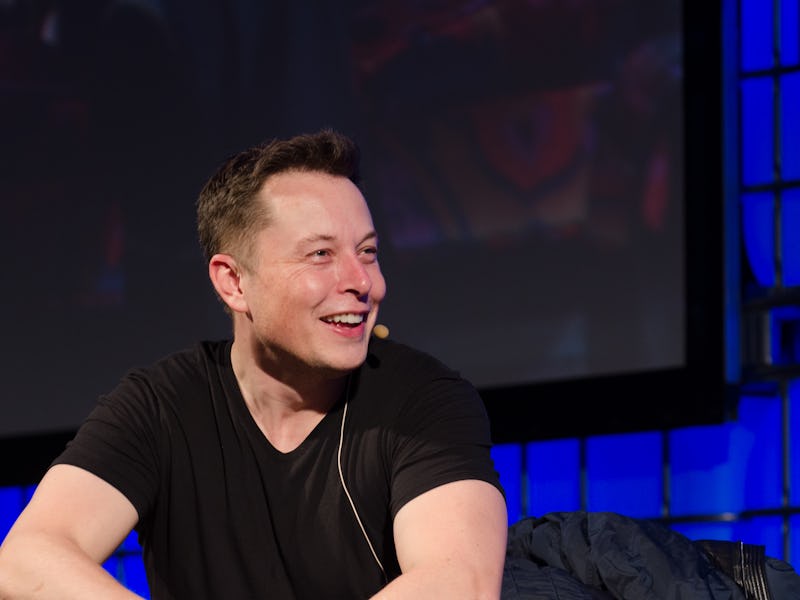A conversation between TED talk curator Chris Anderson and Tesla and SpaceX CEO Elon Musk took a philosophical — and rather personal — turn in Vancouver on Friday.
Prompted by a discussion of Musk’s vision for SpaceX’s interplanetary transport system, the conversation veered to basically discussing the meaning of life.
In a kind of playful way, Anderson asked Musk: “Why Elon, why do we need to build a city on Mars with a million people in it, within your lifetime — which I think is what you’ve said you’d love to do.”
“I just think there have to be reasons why you get up in the morning and you want to live,” Musk said. “What’s the point? What inspires you? What do you love about the future?
“If the future doesn’t include being out there among the stars and being a multi-planet species, it’s incredibly depressing.”
Space X's interplanetary transport system will employ rockets that have four times the thrust of the Saturn V. No big deal.
The response garnered a nice applause from the audience. Acknowledging Musk’s work on sustainable energy, Anderson took the conversation further, asking him how he rationalized prioritizing future-thinking projects when there was so much humanitarian work that could be done in the present.
Musk considered the question for a moment, and replied that he believed sustainable transportation was inevitable because sustainable energy must exist in order for humans to survive. “The fundamental value of a company like Tesla is the degree to which it accelerates the advent of sustainable energy faster than it would otherwise occur,” he added.
Space exploration, on the other hand, Musk does not see as inevitable.
“In 1969 we were able to send somebody to the moon. … Then we had the space shuttle. The space shuttle could only take people to low Earth orbit. The space shuttle retired and the United States could take no one to orbit, so that’s the trend.”
“It only improves if a lot of people work very hard”
To Musk, the impetus and technology to explore and build in space has in fact decelerated. “People are mistaken when they think that technology just automatically improves,” he said. “It does not automatically improve. It only improves if a lot of people work very hard to make it better, and I think, by itself, it degrades.
“You look at ancient civilizations like ancient Egypt and they were able to make the pyramids and they forgot how to do that. And the Romans, they built these incredible aqueducts, they forgot how to do it.”
Anderson hypothesized that part of his keen interest in colonizing Mars comes from Musk’s need to inspire humanity while he tries to save it. Musk’s answer was a little more plain.
“I think the value of beauty and inspiration is very much underrated, no question,” Muska said. “But I want to be clear, I’m not trying to be anyone’s savior. I’m just trying to think about the future and not be sad.”
If you haven’t seen it, here’s the incredibly vibey video SpaceX released last year illustrating its interplanetary transport system, which Musk is convinced will become a reality in the next eight to ten years.
Musk also had a request for the audience, and presumably, the general public, as his parting words: “You’ll tell me if if ever starts getting generally insane, right?”
Watch the full interview:
